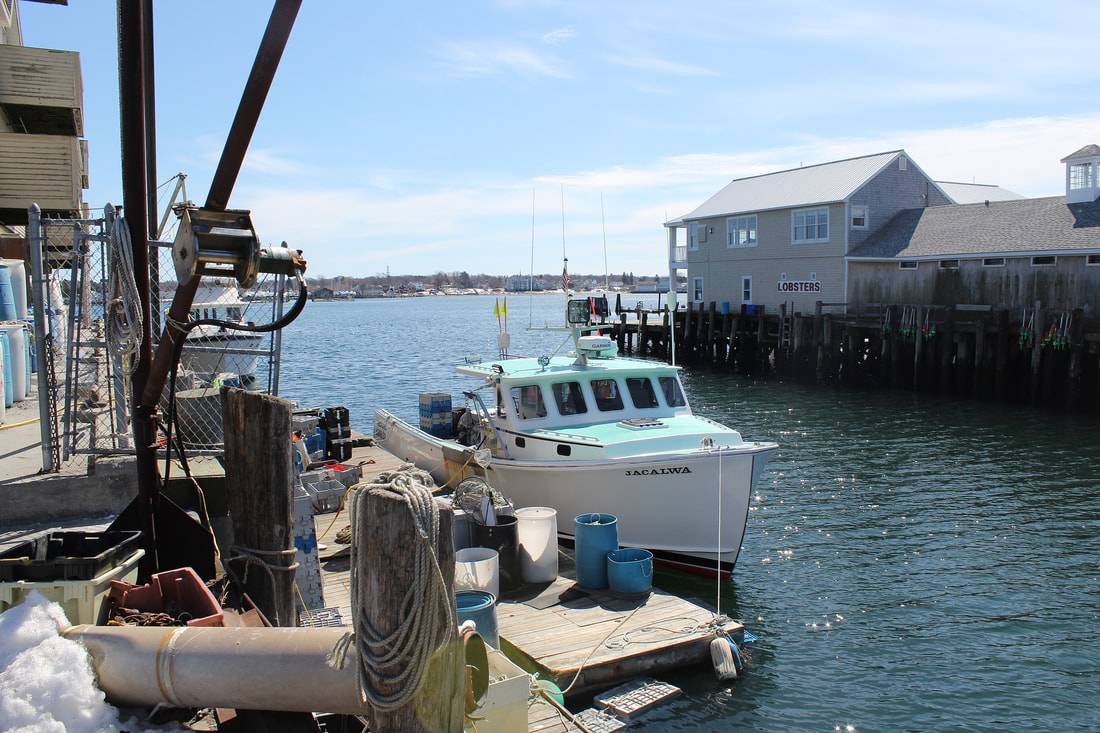|
The following is some back and forth discussion on The Ghost Trap, the characters and Maine itself from the Goodreads book club in April. 2011.
Donna wrote: "I am really enjoying the sound of the books. The voices are real and true and they are the things that regular (?) people sound like. Of course I love Jamie and I love how he is different but still the same. Does that make sense???" Krystal wrote: Nah. Totally makes sense. That's one of the things I like about the book, along with the whole gritty feel of the countryside and lobstering community. Someone mentioned the whole Jamie/Anja relationship thing, and how sometimes Jamie's reactions to Anja aren't always exactly civil or something. I totally agree with K here. That's just real. I've got a cousin in her early twenties who cares for her ailing mother 24/7. To say it's hard work is an understatement. And it's natural for that kind of stress to cause people to lash out or say unkind things. Anyway. I'm not that incredibly far into the book, but I'm making my way through. It's not my usual read, but I am enjoying it. Erica wrote: I really like your perspective. I think this is why I enjoy this book so much; the relationships are so complicated. I think this added to what others have said earlier. I do enjoy that this novel does allow for male sympathy and doesn't just bash Jamie. K wrote: I was told by my publisher she didn't even realize I was female until after they'd accepted the manuscript--they thought this book had been written by a man. To some degree, with the material and characters I was working with, I took this as a compliment. Not because I think men make better writers than women, but because as a female, I didn't want to get stereotyped with any "man-bashing" or overly emotional scenes. If lobstermen were going to read this (and many have) I wanted them to feel that these characters were real, were flawed and yet, people they could identify with. As it turns out, half my readership on this novel has been men. And I've been told, "I feel like these guys are one of us, like they could be living and working in this community." On the other hand, I've learned along the way, with women being the primary reading audience in the U.S, many editors just don't want an overly male-driven plot and/or characters. So with Anja's situation and with a few strong female characters (Donna, Carolyn, Happy), I tried to strike an even balance. Nina wrote: How did you get involved in the lobstering community and how did the research process work? K wrote: Short answer: "With extreme diplomacy." Having moved here "from away" in the mid 1990s (that's Maine-speak for someone whose grandparents weren't born here) I found myself in a quaint little harbor town eager to scratch the surface of what the Chamber of Commerce brochures were marketing. In other words, the romantic Maine, the kind of place you might see portrayed in chicklit novels about "escaping it all and moving to a Maine island," was not entirely my experience here. Well, sort of. Let's say some of the time it was. But at my favorite watering hole, I came into contact with a much more interesting archetype: the Maine fisherman. Usually, this type of guy was unshaven, boisterously cheerful and full of hell or quiet, reserved and full of life-altering stories on the water. So as I say in my bio, "after a beer or three" I got to be friends with a few of them. And because I was a journalism major, all I ever did is ask questions. At the time I was starting to formulate a loose plot (around 2000)-- no one else had really written about this subject in a fictional setting, except for "Eat, Pray, Love" author, Elizabeth Gilbert, who'd written her own version of trap wars in the compelling novel Stern Men. Apparently Gilbert (who wasn't from Maine) had hired Mainers to take her to an island so she could interview people for her book, according to those I've talked to who served as her "ambassador." Even though I had friends in the business, this wasn't a community that wanted to just hang their business out for all to see! Maine lobstering communities are notoriously TIGHT and similar to the Amish in that they have interacted as a subculture within the overall mainstream community for centuries. On the water, they serve as their own police, more often than not, and are well regarded for their ethical and sustainable fishing practices created a couple of hundred ago. So with extreme diplomacy, I researched and recorded everything I could get my hands on for about 8 years (newspaper articles, books, personal accounts, etc.) and promised those who told me true stories about illegal and underground wars they personally witnessed or experienced that I wouldn't use real names, dates or identifiable situations. You will see on my website's blog "Inside The Lobstering Life" there's an email from one such lobsterman who, on the condition of anonymity, gave me the tactics, the motivations and the archetypes of the "players"--which became the backbone of main characters Jamie Eugley, his father, James, Jamie's best friend, Thongchai and the community "Godfather" --Don Thatcher. So, that's really how the structural part of the novel came together (the truly most difficult part--I won't lie--I had no interest in knowing how a lobster trap winch/hauler worked--but so I didn't sound like an IDIOT, I researched the hell out of it). After the novel was published, I was told I didn't get the exact elements of the cribbage scene right but hey, I'll live. You can see more of the online discussion here.
0 Comments
|
Author
News, musings, and events from a Maine coast writer. Stay Salty! Archives
July 2024
Categories
All
|

 RSS Feed
RSS Feed